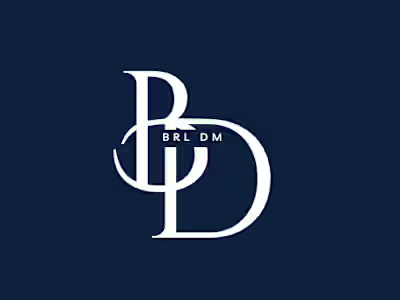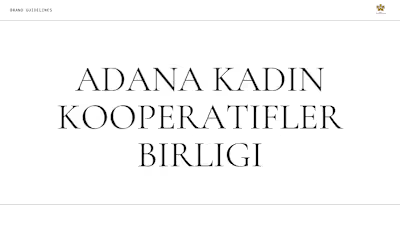Copy Writing for a BRC Consultant
Audience and goals
Target audience/ community of interest - These content will be for people/ companies who needs BRC certificate. These companies are most of the time manufacturers of food products. To be able sell their products they need to make sure that it aligns with the quality management and food safety requirements. The audience may or may not know anything about the BRC
Goal - Inform potential customers about the certificate and it’s requirements. At the same time informing them about the process and answer possible questions they might have in mind with our context. This way we can build trust within the audience, with showing our expertise about the topic, and build long-term relationship with them. If they are not working with us these content might be convince them to work with us.
What is BRC Certification?
BRC certification, developed by the British Retail Consortium (BRC) in the UK, is a globally recognized standard for ensuring food safety and quality management. Initially designed to help companies meet UK and EU food safety laws, BRC certification now serves as a powerful way for organizations worldwide to demonstrate their commitment to high standards, giving them a competitive edge in the food industry.
The primary aim of the BRC standards is to set a reliable benchmark for due diligence and supplier approval, providing clear guidelines for product safety and operational consistency. These standards are widely adopted by food manufacturers around the globe, particularly those supplying to British and European retailers.
Beyond food safety, BRC standards cover a wide range of legal and due diligence requirements, benefiting both suppliers and retailers. Here’s why BRC certification is valuable:
Risk Mitigation: By establishing strict safety protocols, BRC certification helps reduce risks during the production process, offering a proactive approach to identifying and managing potential hazards.
Customer Trust: BRC-certified companies must pass rigorous testing and analysis, which reassures customers of their commitment to safety and quality, enhancing brand credibility.
Operational Consistency: The standards create uniform processes across the supply chain, streamlining operations and fostering consistent quality.
Cost Efficiency: Proactively addressing compliance and safety responsibilities often leads to fewer incidents, minimizing liabilities and reducing costs associated with non-compliance or operational disruptions.
BRC certification is more than a regulatory formality; it’s a commitment to excellence in food safety and quality, reinforcing consumer trust and enhancing business reputation globally.
Why is BRC important for quality management?
The BRC certification, developed by the British Retail Consortium, is an internationally recognized standards for food safety and quality management. This certification is based on rigorous standards created by the industry experts to ensure that manufacturers are maintaining consistent quality and safety in their products. Achieving BRC certification require manufacturers to adhere to a set of prescribed standards, which are designed to promote a systematic approach to managing risks and ensuring compliance with best practices in food safety and quality.
To attain BRC certification, manufacturers must implement a comprehensive quality management system that aligns with the BRC’s globally recognized standards. This involves creating, documenting, and following detailed process that cover every aspect of production, from sourinc and handling raw materials to processing, packaging, and distribution. This helps them to create a holistic view of the product life cycle. These standards act as a “blueprint” for manufacturers, helping them to identify potential pain points and risks that could impact product quality, safety, and legality.
By pinpointing and addressing these risks, companies can streamline their operations, enhance efficiency, and ensure product consistency. Ultimately, BRC certification helps businesses demonstrate their commitment to producing safe, legal, and high-quality products. Implementing a BRC-compliant food safety management system also reduce likelihood of customer complaints and boost consumer confidence, reinforcing the brand’s reputation for reliability and safety.
How to prepare for BRC audit
To obtain BRC certification, manufacturing companies must go through a structured audit process to confirm compliance with global safety and quality standards. This process is divided into three main phases: pre-audit, audit, and post-audit.
Pre-Audit
The pre-audit phase involves gathering all documentation required by BRC standards. Next, internal audits should be conducted, using a BRC checklist to ensure no compliance criteria are missed. This step is crucial, as it helps identify risk factors that may impact product quality. After identifying any necessary improvements, companies should train employees to ensure compliance throughout the product lifecycle.
Audit
During the audit phase, a pre-audit briefing takes place to clarify the process. On inspection day, the auditor first reviews documents to verify compliance, then conducts an on-site inspection to ensure practices align with documentation. Finally, the auditor evaluates the evidence gathered to assess compliance fully.
Post-Audit
In the post-audit phase, the auditor creates a detailed report outlining any non-conformities and corrective actions. The auditor consults with company representatives to address these points, after which they may recommend actions for continuous improvement. Once corrective actions are verified, BRC certification can be awarded.
Cost of BRC certification
The cost of BRC certification can range from several thousand to tens of thousands of dollars, influenced by several key factors:
Factory Site Size: Larger sites may require longer audits, raising costs.
Existing Quality Management Systems: Factories with systems already aligned with BRC standards might incur lower preparation costs.
Type of BRC Standard: Costs differ depending on the specific BRC standard being pursued.
Business Complexity: Complex processes or products may require more thorough audits.
Multiple Locations: Certification across multiple sites will increase costs.
Support Level from Certification Body: The level of guidance or support requested can impact the final cost.
The table below provides average cost ranges and audit duration estimates based on audit type.
Audit Type Average Cost Range (CAD) Number of Audit Days
BRC Storage & Distribution $6,200 – $6,800 1 day
Food Safety $7,500 – $8,500 2 days
BRC Start – Basic $5,300 – $5,600 1 day
BRC Start – Intermediate $5,300 – $6,000 1-1.5 days
Note: Costs and audit days may vary by location and certification body, as prices can be region-specific.
BRC Certification vs Other food safety standards
Several factors set BRC certification apart from other food safety standards, making it a unique choice for companies seeking consistent quality and safety practices. Here are the primary differences:
Focus: BRC certification emphasizes food safety and quality management systems, with a specific focus on maintaining consistent quality and safety standards throughout operations.
Scope: The BRC standard applies universally across food industries, offering a consistent framework that can be followed across various sectors. Other certifications often have standards that vary by industry.
Cost: With BRC, costs are generally scaled based on the size of the business, potentially making it a more cost-effective choice for smaller companies compared to some other certifications.
Documentation: BRC requires fewer records compared to other standards, though it still upholds rigorous safety and quality requirements. This can simplify compliance without compromising thoroughness.
Auditing: BRC certification includes both announced and unannounced audits, encouraging companies to maintain readiness at all times, which can enhance ongoing compliance.
Certification Body: For BRC certification, companies must choose an accredited certification body to conduct the audit, ensuring consistency and reliability in the certification process.
Who needs BRC
BRC certification is a critical requirement for companies operating within food-related industries to ensure compliance with stringent food safety and quality management standards. BRC certification is relevant across a wide range of sectors, including:
Food Manufacturers and Processors: Food production and processing companies rely on BRC certification to meet quality and safety regulations.
Retailers: Retailers selling food products often need BRC certification to guarantee product safety for consumers.
Importers and Exporters: Food importers and exporters require BRC certification to meet international food safety standards.
Packhouses: Packhouses handling fresh produce packaging must ensure safe handling practices through BRC compliance.
Slaughterhouses: Animal processing facilities require BRC certification to maintain strict safety standards.
Canneries: Canneries involved in canned food processing rely on BRC certification to uphold safety and quality in their operations.
Logistics and Distribution Providers: Companies storing and transporting food products benefit from BRC certification, ensuring that storage and transportation practices align with safety standards.
Packaging Manufacturers: Packaging companies involved in creating food-safe packaging materials also find BRC certification valuable to maintain quality in the supply chain.
If your company, or any of your partners, operates within one of these industries or other food-related sectors, obtaining BRC certification may be necessary to ensure compliance and quality across the food supply chain.
What are the benefits of BRC
BRC certification is more than a regulatory requirement; it offers several strategic benefits to manufacturers, from boosting customer trust to enhancing operational efficiency. The main advantages include:
Customer Trust: BRC certification reassures consumers and industry partners that the company complies with high standards for food safety and quality, building confidence in the brand.
Legal Compliance and Support: In the event of legal proceedings, BRC certification can serve as credible evidence of adherence to established food safety and quality standards, providing legal support and added security.
Competitive Advantage: This certification is often necessary for partnerships with major retailers, distributors, and international markets. Having BRC certification allows companies to explore new business opportunities and strengthen their market position.
Process Efficiency: BRC standards improve quality management by addressing process pain points, helping companies to operate more smoothly, reduce waste, and minimize risks of non-compliance.
Strengthened Company Reputation: Achieving BRC certification enhances a manufacturer’s reputation, signaling a commitment to compliance and quality that positions the company as a reliable and industry-compliant partner.
How you should choose your BRC consultancy company
When pursuing BRC certification, the support of a consultant can make the process more efficient. However, selecting the right consultant is key. Here are several important factors to guide your decision:
Qualifications and Expertise:
Due to the complexity of the BRC audit process, it is essential to work with a consultancy that has specific experience in this area. Examine their background and industry expertise, as well as the types of certification processes they have successfully managed for other clients. This will help you evaluate if they’re a good fit for your specific needs.
Client Testimonials and Recommendations:
Reading client testimonials can give you valuable insights into a consultancy’s strengths, approach, and reliability. Recommendations from trusted sources are particularly helpful, as they can provide a more genuine perspective on the consultancy’s methods and level of support.
Location and Associated Costs:
Although BRC standards are the same globally, the location of your consultancy can impact communication, time zone compatibility, and cost. Choosing a consultancy within a suitable time zone can improve coordination, and understanding local cost differences will help you budget effectively.
BRC food standard sections
The BRC food standards are divided into nine main sections, each essential to maintaining a safe, efficient, and high-quality manufacturing process. Compliance with these sections ensures that food safety risks are minimized, quality management is optimized, and production efficiency is maintained.
Senior Management Commitment - Effective food safety systems require a strong commitment from senior management. For these systems to be truly successful, top management must act decisively to implement, support, and continually improve food safety standards. Their leadership sets the foundation for consistent and safe manufacturing practices.
Food Safety Plan (HACCP) - An effective Hazard Analysis and Critical Control Point (HACCP) program is essential for identifying and managing potential risks to food safety. This standard mandates that companies develop a HACCP plan based on the globally recognized Codex Alimentarius guidelines, ensuring a structured approach to identifying hazards and implementing preventive controls.
Food Safety and Quality Management System - This section requires a documented management system that supports the control processes necessary to produce safe and high-quality products. The system must ensure that staff are properly trained and that operational procedures are in place to meet safety standards and customer expectations.
Site Standards - Site standards cover aspects of facility compliance, cleanliness, and site control. This includes factors such as factory conditions, equipment sanitation, pest control, foreign object control, and food defense measures to maintain a safe production environment.
Product Control - Product control measures include allergen management, food fraud prevention, and product testing. These controls ensure that products are safe, authentic, and meet regulatory requirements.
Process Control - This section ensures that the documented HACCP plan is implemented consistently, with daily checks and procedures to maintain product quality and safety standards across all production activities.
Personnel - Training, hygiene practices, and protective clothing requirements are outlined to ensure that staff maintain appropriate hygiene standards and are equipped to safely handle food products.
High-Risk, High-Care, and High-Maintenance Production Areas - Certain products are especially susceptible to pathogen contamination. This section provides additional safety controls for high-risk and high-care areas to mitigate contamination risks and protect product integrity.
Traded Products Requirements - For facilities that purchase and sell food products stored on-site but not manufactured or processed there, this section provides standards to ensure these traded goods meet the same safety and quality criteria as manufactured products.
BRC Training Programs: Elevate Safety, Quality, and Compliance
BRC (British Retail Consortium) training programs equip businesses and professionals at every level—from beginners to advanced auditors—to uphold BRC standards in food safety, quality, and compliance. Here’s an engaging overview of the core BRC training options:
Understanding & Implementing Courses
Designed for those new to BRC standards, these courses provide an in-depth look at BRC requirements in areas like Food Safety, Packaging, and Storage. Participants gain essential insights into risk assessment, hazard analysis, and effective management practices, setting a solid foundation for certification.
Internal Auditor Courses
For team members responsible for internal audits, this course teaches audit planning, identifying non-conformities, and taking corrective actions. Graduates leave prepared to conduct effective internal audits, keeping organizations ready for official BRC assessments.
Lead Auditor Courses
Geared toward experienced auditors, this advanced program trains participants to lead independent BRC audits. Through hands-on exercises and real-world case studies, they master complex auditing techniques and team management, qualifying as lead auditors for BRC standards.
BRC Conversion Courses
Perfect for professionals experienced in other frameworks (e.g., ISO), these courses focus on BRC-specific requirements and differences, helping participants transition smoothly into BRC-compliant roles.
BRC Professional Program
This elite certification program combines several courses, exams, and practical assignments, producing certified BRC professionals. Recognized globally, this credential builds credibility and expertise in quality management and compliance.
Additional Training Options
Customized Training: Tailored programs to address specific business needs, such as high-risk process controls.
eLearning Modules: Flexible online courses, ideal for foundational skills like allergen management and root cause analysis.
Why BRC Training?
Operational Excellence: Teams learn to identify risks, manage non-conformities, and boost operational efficiency.
Certification Readiness: Training minimizes non-conformities, preparing organizations for smooth BRC audits.
Enhanced Employee Expertise: Builds a culture of quality and continuous improvement, raising staff competence and confidence.
Investing in BRC training empowers businesses to achieve certification and maintain the highest standards in product safety, quality, and compliance.
Like this project
Posted Nov 6, 2024
Created clear, engaging copy to boost awareness and conversions, positioning a consultancy company as the go-to BRC standards experts.
Likes
0
Views
14





